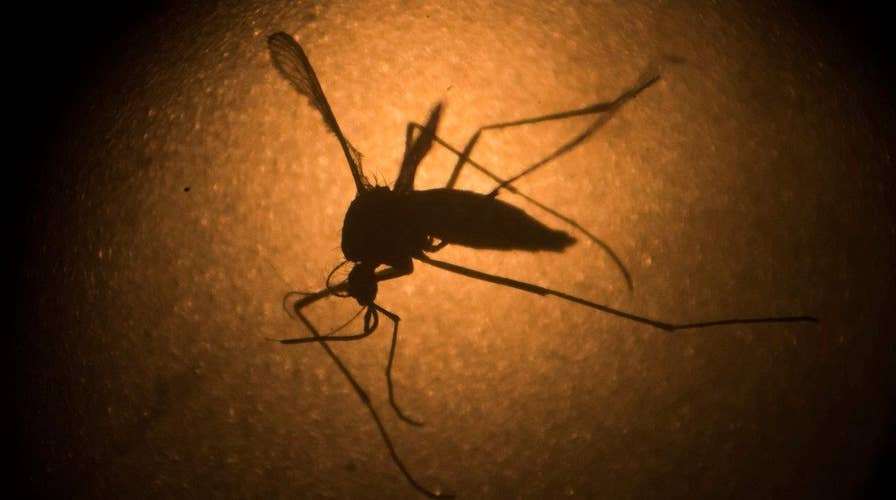CDC: More than 30 states at high risk of Zika transmission
William La Jeunesse reports from Los Angeles
At the Centers for Disease Control and Prevention we’ve learned to expect the unexpected the unexpected – but the ongoing Zika outbreak has caused dangers from a mosquito bite no one imagined: birth defects.
It’s been more than 50 years since we’ve seen a birth defect linked to a virus – and never before have we seen this from a mosquito bite. The reported association between Zika virus infection and microcephaly (small head size) is unfortunately likely to be part of a spectrum of brain damage that results from this virus invading the brain of the developing fetus.
There are many unknowns with this virus, but what’s certain is that it has arrived in United States territories and is also already affecting Americans who have traveled to areas with Zika virus transmission.
The U.S. Commonwealth of Puerto Rico has had hundreds of locally acquired cases of Zika, and we expect that by the end of the year they could have hundreds of thousands of cases and thousands of infected pregnant women. The Puerto Rico Department of Health, CDC, and partner organizations are working around-the-clock to provide pregnant women with information and resources to reduce their risk of infection, but it is a daunting task. Many homes lack window screens and air conditioning, making it hard to prevent mosquito bites. Access to contraception in Puerto Rico is limited for couples who want to avoid pregnancy during this outbreak.
There are things that can reduce risk of infection right now in Puerto Rico, such as wearing effective insect repellents and long-sleeved shirts and long pants, reducing standing water that allows mosquitoes to breed near homes, and take additional steps to make the homes of pregnant women more mosquito-proof. In addition, the male partners of pregnant women should to use condoms consistently and correctly during sex or abstain, because the virus may survive in human sperm after a man is infected.
Zika is likely to reach the continental United States in the coming months. Chikungunya and dengue – viruses spread by the same mosquito that spreads Zika – have caused clusters of cases in Florida and Texas. Even if Zika does not spread in a particular state, there could be many travel-associated cases – posing a risk for sexual transmission between men and their pregnant partners.
Friday, hundreds of state and local health representatives will gather at CDC to develop their Zika action plans, including how to provide information for the public (especially pregnant women), how to track and control the mosquitoes that spread Zika, how to expand availability of laboratory testing, and how to assure blood safety. It’s a crucial event in the nation’s response to the virus.
To protect Americans, all levels of government need to implement a comprehensive Zika response.
At CDC, we are scaling up lab capacity to test for Zika infection and strengthening efforts to control the mosquito that spreads Zika. Faster diagnostics are needed, as are effective mosquito control strategies. We are working to further evaluate the relationship between Zika and microcephaly, as well as with other neurological conditions such as Guillain-Barré syndrome. With the National Institutes of Health as the lead and support from the Biomedical Advanced Research and Development Authority (BARDA), we are working to accelerate vaccine development to fully protect our future generations.
We need funds to put plans into action and boots on the ground.
CDC’s mission and commitment is to protect the health, safety and security of Americans—and without Zika supplemental funding requested by the Obama administration, we won’t be able to provide the robust protection against Zika that Americans deserve. There is something everyone can do to control this emerging epidemic and to protect our next generation from this newly discovered threat, and we must act now.

